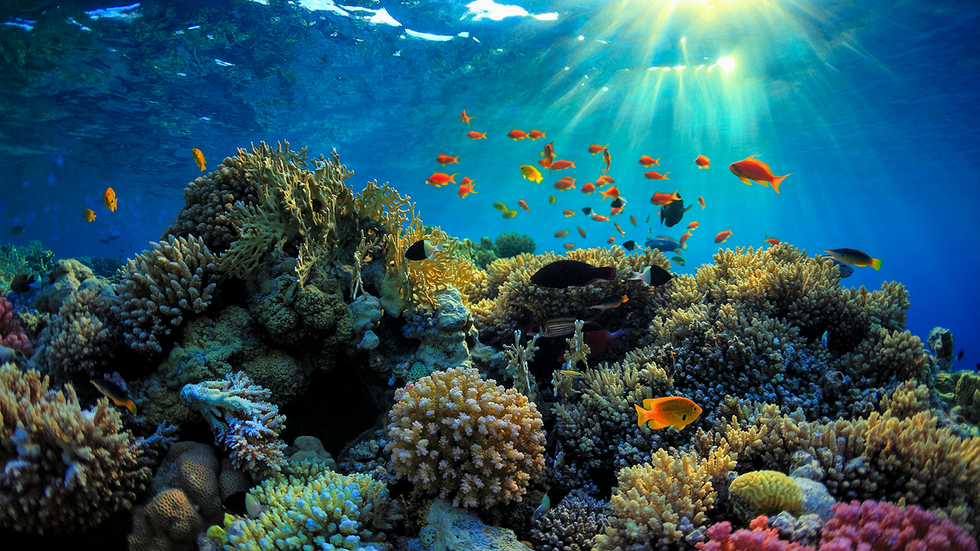The world's largest reef system, or the Great Barrier Reef is being increasingly affected by climate change. Large selections of the reef are now dead. Humans are killing it and there's nothing Australians on their own can do about it. Everyone is responsible.
Huge sections of the Great Barrier Reef, stretching across hundreds of miles of its most pristine northern sector, were recently found to be dead, killed last year by overheated seawater.
An ocean water temperature spike last year cause a massive bleaching event. Colorful corals turned an antiseptic, silky white. The Australian government reports that sections of the reef are getting slammed again this year.
There is little doubt that temperature is the culprit. Reefs far away from human runoff and other local. risks are suffering. One example of something that's being affected by this is corals. Corals are polyp creatures that build their iconic limestone structures in cooperation with photosynthesizing algae. When ocean temperatures increase, the algae emit poisons. The corals then reject their symbiotic partners and succumb to disease and death.
Under normal conditions, corals can often recover from big bleaching shocks, but conditions are no longer normal. Higher background ocean temperatures mean that dangerous spikes are more likely. The Trump administration proposed deep cuts for the Environmental Protection Agency, singling out climate programs.
The state of coral reefs is a telling sign of the health of the seas. Their distress and death are yet another marker of the ravages of global climate change. If most of the world's coral reefs die, as the scientists fear is increasingly likely, some of the richest and most colorful life in the ocean could be lost, along with huge sums from reef tourism. In poorer countries, lives are at stake. Hundreds of millions of people get their protein primality from reef fish, and the loss of that food supply could become a humanitarian crisis.
In order to help save the great barrier reef you don't have to be a scientist, you just have to be a person. Conserving water, help reduce pollution by walking or riding a bike, research the products you put on your lawn by seeing if it could be harmful to marine life, dispose your trash properly by leaving unwanted fishing lines or nets in the water or on the beach, and spread the word, a little goes a long way.



















